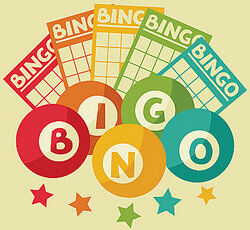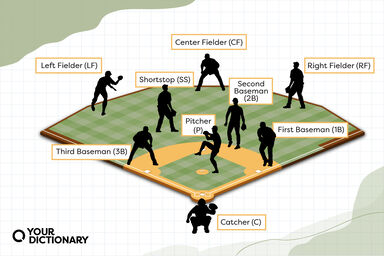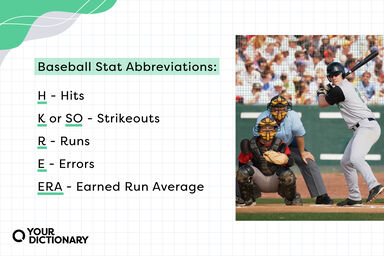Play Definition
- In a position to be legally or feasibly played:
The ball is now in play.
- In a position, or rumored to be in a position of possible corporate takeover:
The company's stock rose in price when it was said to be in play.
- Not in a position to be legally or feasibly played.
- To cooperate:
The opposing attorneys refused to play ball with us.
- To set opposing parties or interests against one another so as to advance one's own goals.
- To behave in a recklessly irresponsible or deceitful manner:
played fast and loose with the facts.
Idioms, Phrasal Verbs Related to Play
- in play
- out of play
- play ball
- play both ends against the middle
- play fast and loose
- play for time
- play games
- play hard to get
- play in Peoria
- play into (someone's) hands
- play it by ear
- play (one's) cards
- play possum
- play the field
- play the game
- play up to
- play with a full deck
- play with fire
- play with (oneself)
- in play
- out of play
- play ball
- play both ends against the middle
- play fast and loose
- play for time
- play games
- play hard to get
- play in Peoria
- play into (someone's) hands
- play it by ear
- play (one's) cards
- play possum
- play the field
- play the game
- play up to
- play with a full deck
- play with fire
- play with (oneself)
- bring (or come) into play
- in (or out of) play
- make a play for
- play along
- play around
- play at
- play back
- play both ends against the middle
- play catch-up ball
- play down
- play fair
- play favorites
- play for time
- play into someone's hands
- play it
- play off
- play one's cards well
- play out
- play up
- play through
- play up to
- play with oneself
Origin of Play
-
From Middle English playen, pleyen, pleȝen, plæien, also Middle English plaȝen, plawen (> English plaw), from Old English pleÄ¡an, pleoÄ¡an, plæġan, and Old English pleÄ¡ian, pleaÄ¡ian, plagian (“to play, move about sportively, frolic, dance; move rapidly; divert or amuse oneself, occupy or busy oneself; play a game, sport with, exercise, exercise one's self in any way for the sake of amusement; play with; play with a person, toy; strive after; play on an instrument; contend, fight; clap the hands, applaud; make sport of, mock; cohabit (with)"), from Proto-Germanic *pleganÄ…, *plehanÄ… (“to care about, be concerned with") and Proto-Germanic *plegōnÄ… (“to engage, move"); both perhaps from Proto-Indo-European *blek- (“to move, move about"), from Proto-Indo-European *bal- (compare Ancient Greek βλύω (bluō), βλύζω (bluzō, “I gush out, spring"), Sanskrit बल्बलीति (balbalÄ«ti, “it whirls, twirls")). Cognate with Scots play (“to act or move briskly, cause to move, stir"), Saterland Frisian plegia (“to look after, care for, maintain"), West Frisian pleegje, pliigje (“to commit, perform, bedrive"), Middle Dutch pleyen ("to dance, leap for joy, rejoice, be glad"; > Modern Dutch pleien (“to play a particular children's game")), Dutch plegen (“to commit, bedrive, practice"), German pflegen (“to care for, be concerned with, attend to, tend"), Danish pleie (“to tend to, nurse"), Swedish pläga (“to be wont to, be accustomed to"). Related also to Old English plÄ“on (“to risk, endanger"). More at plight, pledge.
From Wiktionary
The noun is from Middle English pleye, from Old English plæġ, pleÄ¡a, plæġa (“play, quick motion, movement, exercise; (athletic) sport, game; festivity, drama; battle; gear for games, an implement for a game; clapping with the hands, applause"), deverbative of pleÄ¡ian (“to play"); see above.
From Wiktionary
-
Middle English playen from Old English plegian dlegh- in Indo-European roots
From American Heritage Dictionary of the English Language, 5th Edition
-
Middle English playen from Old English plegian dlegh- in Indo-European roots
From American Heritage Dictionary of the English Language, 5th Edition
Play Is Also Mentioned In
Find Similar Words
Find similar words to play using the buttons below.





